
13 Sep, 2021
9/11 memorials expose the superficial, imbalanced reactions of Travel & Tourism
Last week, the world united in observing the 20th anniversary of the 9/11 attacks, widely described as “The Day That Changed the World”. Because commercial aircraft were used as live missiles in the horrific attacks, the Transportation, Travel & Tourism sectors were the first to face the resulting geopolitical and military backlash.
Two apex international travel industry groupings, the World Travel & Tourism Council and the International Air Transport Association, issued statements marking the anniversary. So did many other institutions, such as the United Nations, universities, civil society and advocacy groups.
The contrast in the content could not have been more stark.
The WTTC statement expressed sympathy and sorrow only for the U.S. victims of the attacks. The IATA statement only bemoaned the onerous resulting security restrictions. By contrast, the other statements and reports broadened the context to flag the severe and systemic ripple-effect industry-wide, noting the suffering of thousands of Afghan civilian casualties of the “War on Terror”, the trillions of dollars expended and the global xenophobia, racism and right-wing extremism it triggered.
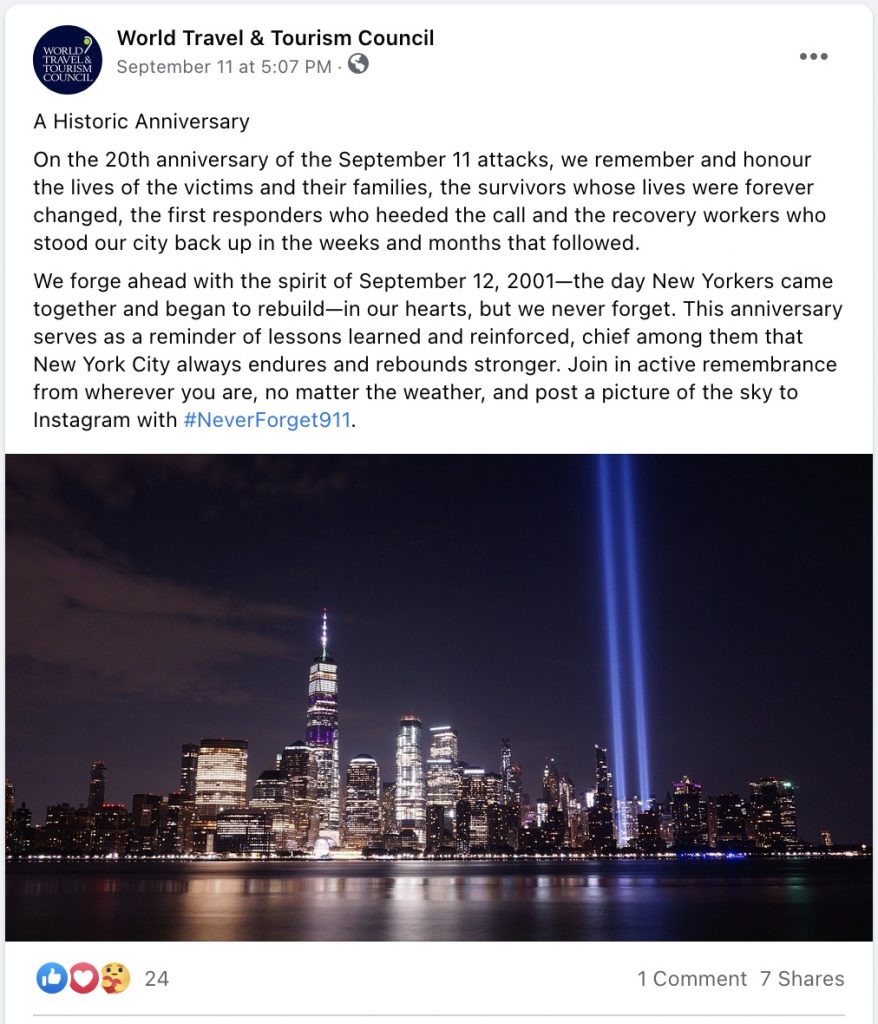

Click here to download the Fact Sheet: https://www.iata.org/en/iata-repository/pressroom/fact-sheets/fact-sheet—-iata-9.11/
History will prove these starkly superficial, imbalanced perspectives to be a regrettable example of the low-grade Travel & Tourism mentality. In medical terms, it is akin to treating the symptoms and ignoring both the cause of the sickness as well as the side-effects of the treatment.
The 20-year “War on Terror” has been widely chastised as a total failure. So why has the Travel & Tourism industry never inventoried the massive economic, social and cultural collateral damage it has suffered as a result? Why has it never pursued accountability?
Today, Travel & Tourism leaders are preoccupied with the Covid-19 catastrophe, which has worsened both the crises-ridden instability of the past 20 years, as well as the travel restrictions.
As the Covid-19 crisis recedes, so too should the health-related travel curbs. The same could happen in the Transportation, Travel & Tourism sectors if the underlying root causes of global conflict are addressed and political leaders held to account for their failures.

Click here to access the website: https://watson.brown.edu/costsofwar/
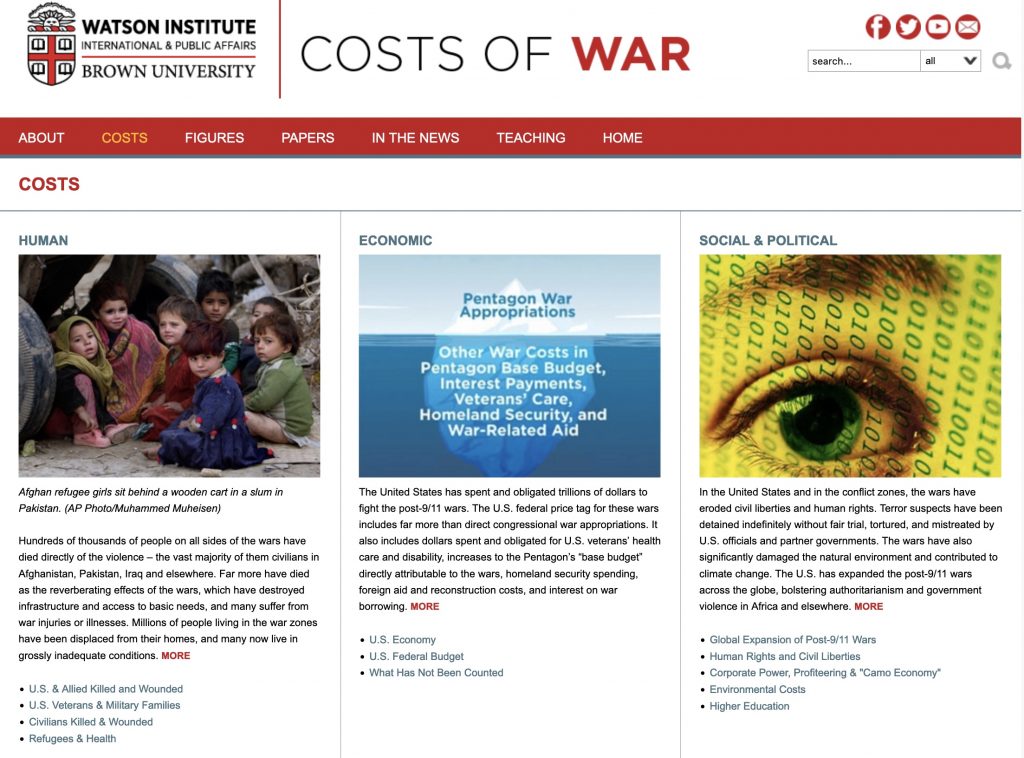
Click here to access the website: https://watson.brown.edu/costsofwar/
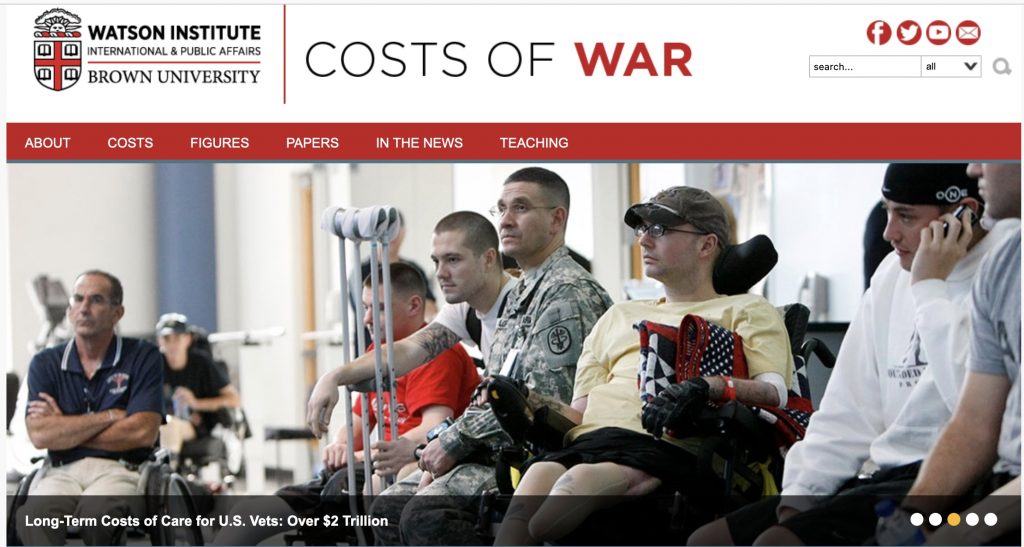
Click here to access the website: https://watson.brown.edu/costsofwar/
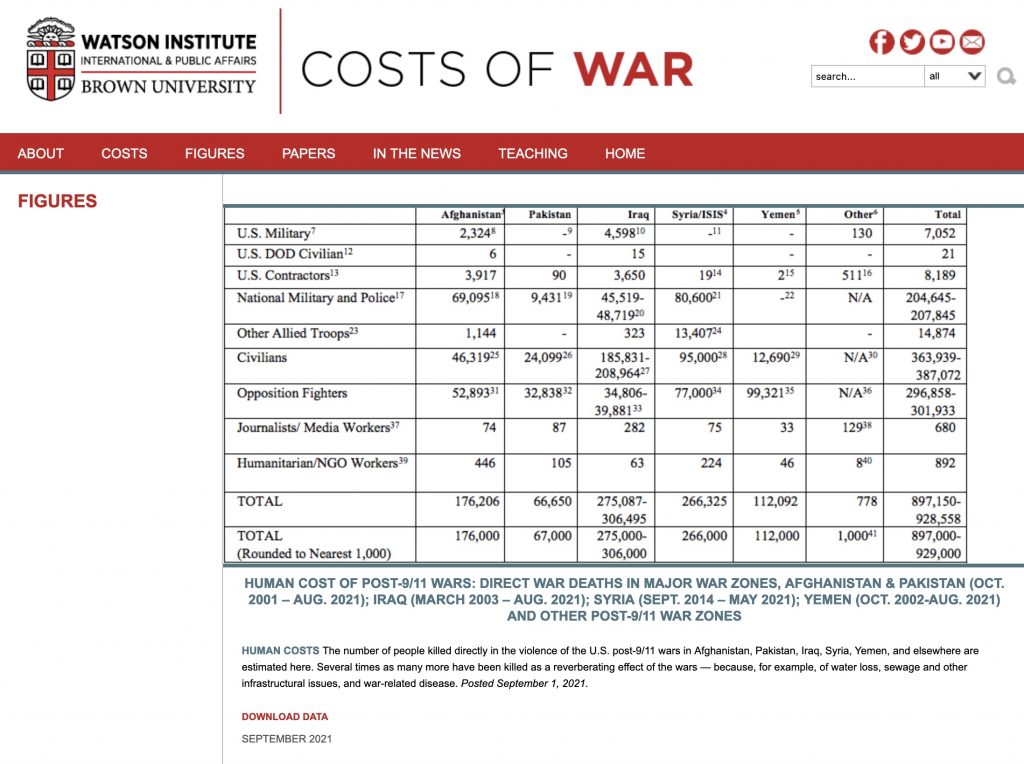
Click here to access the website: https://watson.brown.edu/costsofwar/
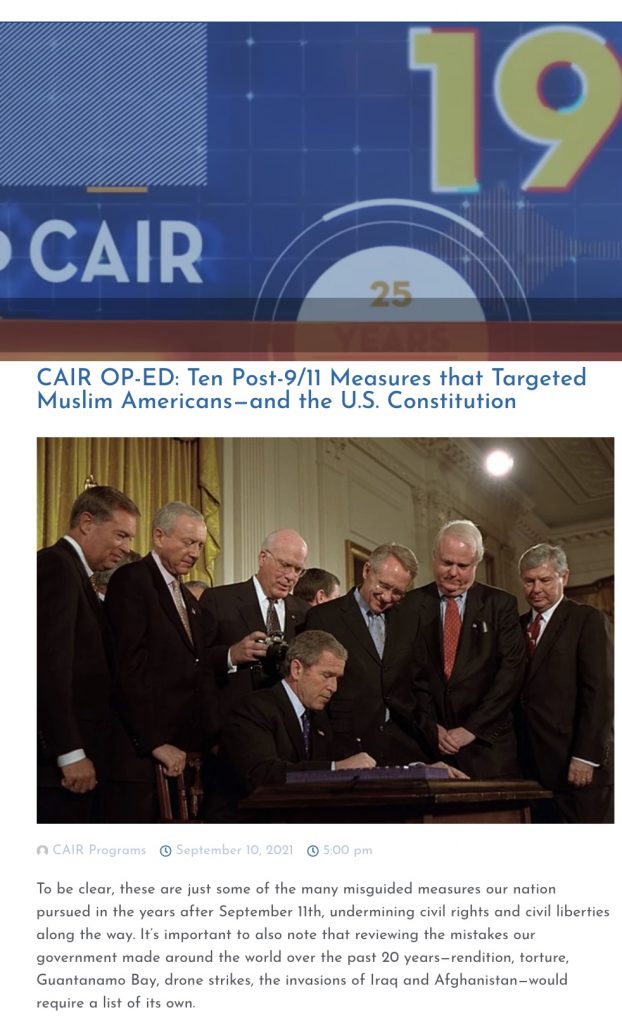
Click here to read the full text on the CAIR website: https://www.cair.com/press_releases/cair-op-ed-ten-post-9-11-measures-that-targeted-muslim-americans-and-the-u-s-constitution-2/
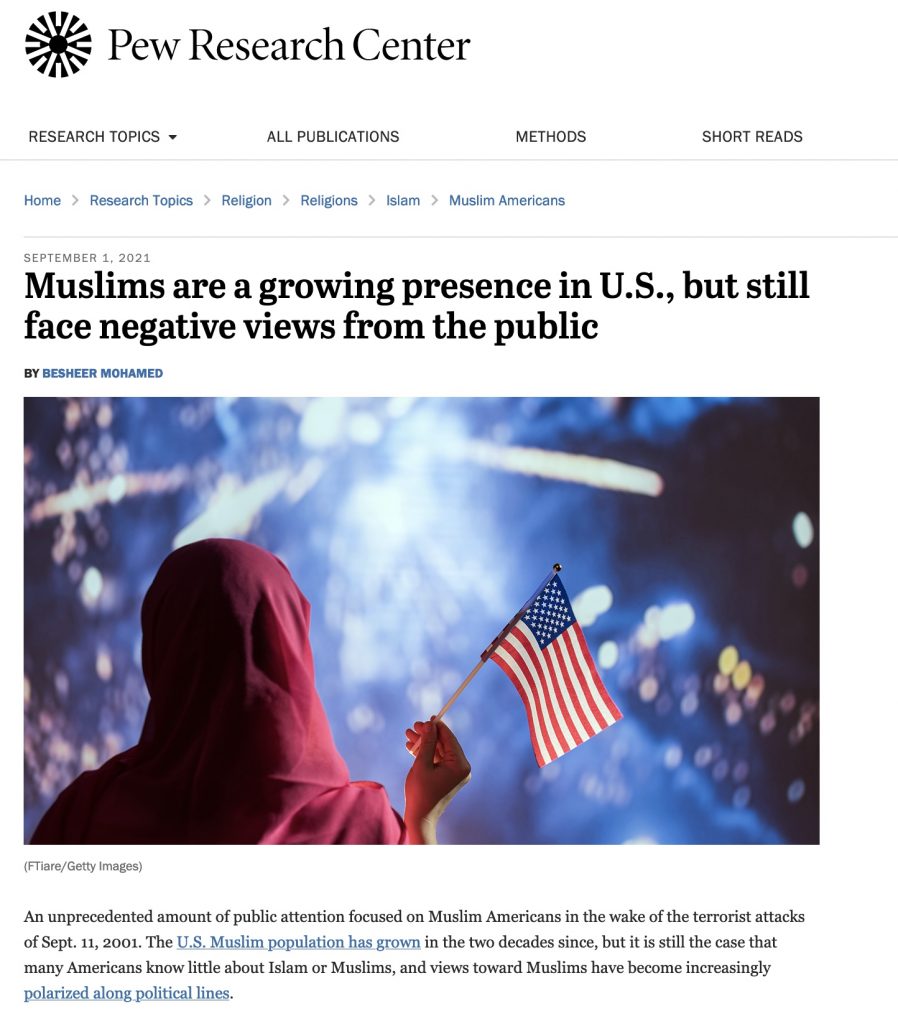
Click here to access the website: https://www.pewresearch.org/fact-tank/2021/09/01/muslims-are-a-growing-presence-in-u-s-but-still-face-negative-views-from-the-public/

Click here to read the full text on the website: https://www.adc.org/adc-statement-on-20th-anniversary-of-9-11/
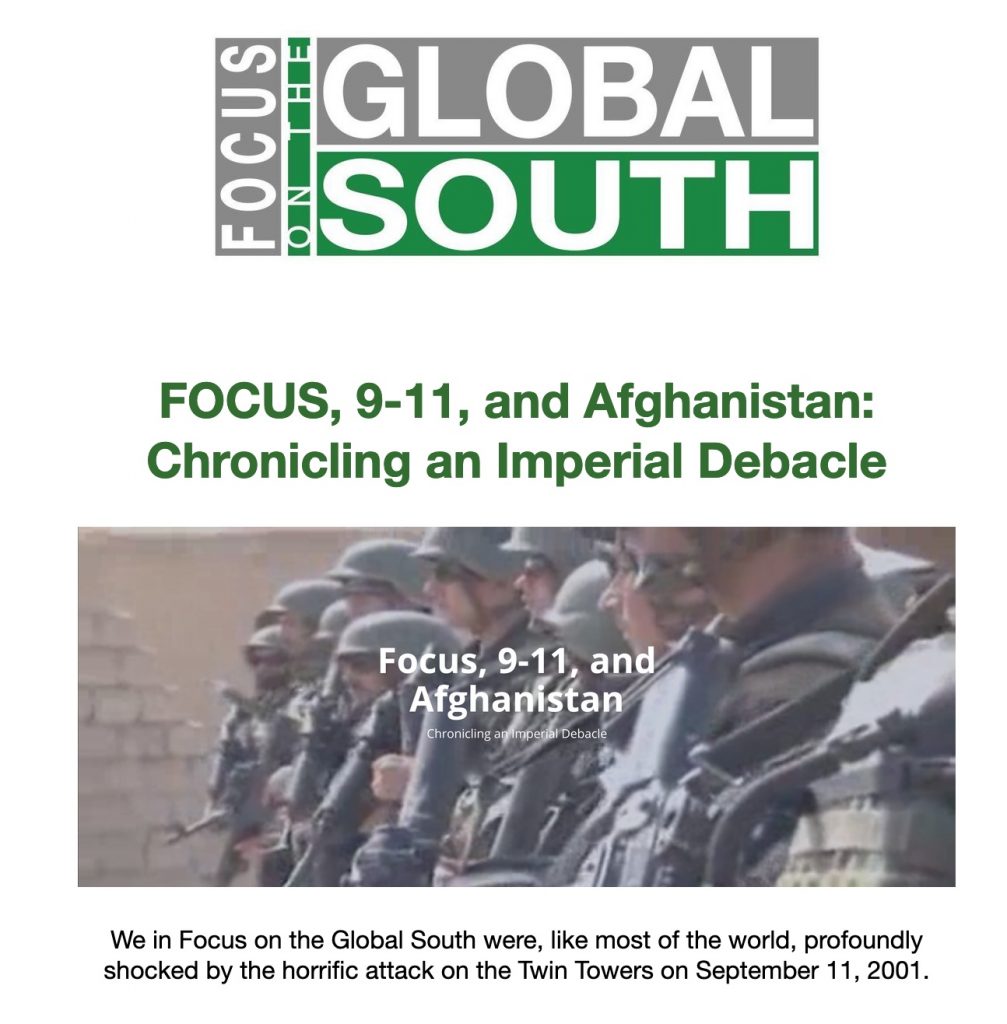
Click here to access the website: https://focusweb.org/focus-911-afghanistan/
One day before the 9/11 memorial, UN Secretary General Antonio Guterres issued a report “Our Common Agenda,” to mark the 75th year of the United Nations and set a roadmap for the next 10 years. According to a UN Press release, he prefaced his remarks with a scathing overview of the parlous state of a world which he described as being under enormous stress, and warned that the world risks a future of “serious instability and climate chaos”.
“From the climate crisis to our suicidal war on nature and the collapse of biodiversity, our global response is too little, too late”, declared the Secretary-General. “Unchecked inequality is undermining social cohesion, creating fragilities that affect us all. Technology is moving ahead without guard rails to protect us from its unforeseen consequences.”
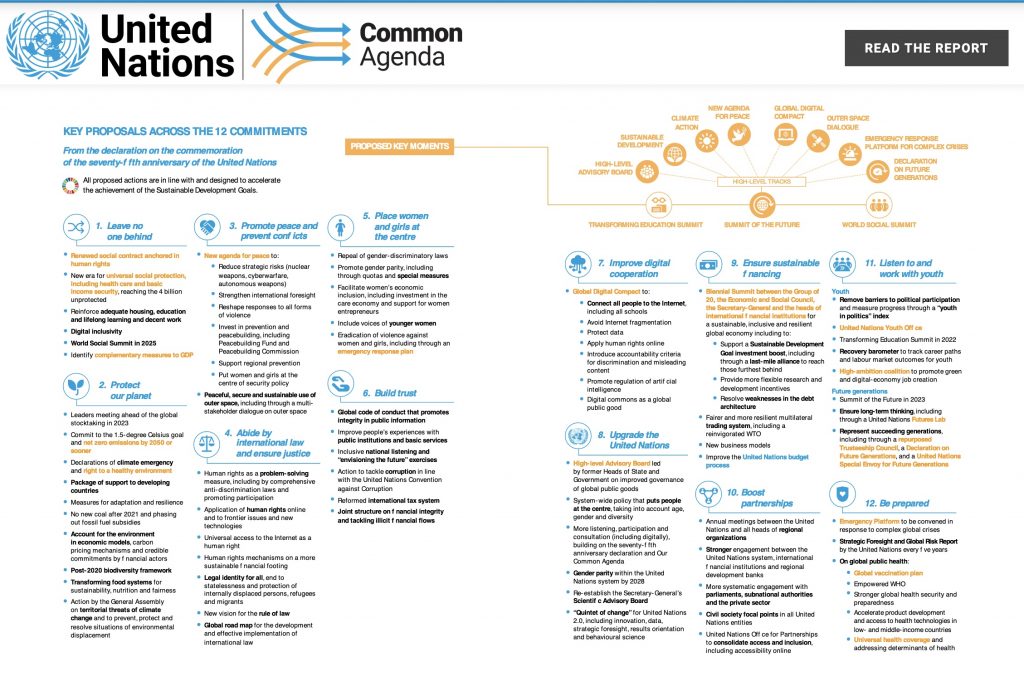
Click here to download the full report: https://www.un.org/en/content/common-agenda-report/
So what does the Travel & Tourism industry, the so-called creator of jobs, preserver of the environment, crucible of peace, friendship and cultural harmony, plan to do about this gathering Perfect Storm of crises, with the next one clearly looming?
If the skewed IATA and WTTC statements are examples, Travel & Tourism institutions have neither the moral backbone nor the intellectual courage to speak truth to power and demand accountability for anything beyond the superficial impacts outlined in the IATA Fact Sheet.
Unless that changes, all proclamations about trying to revive Travel & Tourism, ensure sustainability, safety, security and stability, protect the interests of local communities, create jobs and preserve culture, heritage and the environment are set to prove monstrously hollow.



Liked this article? Share it!